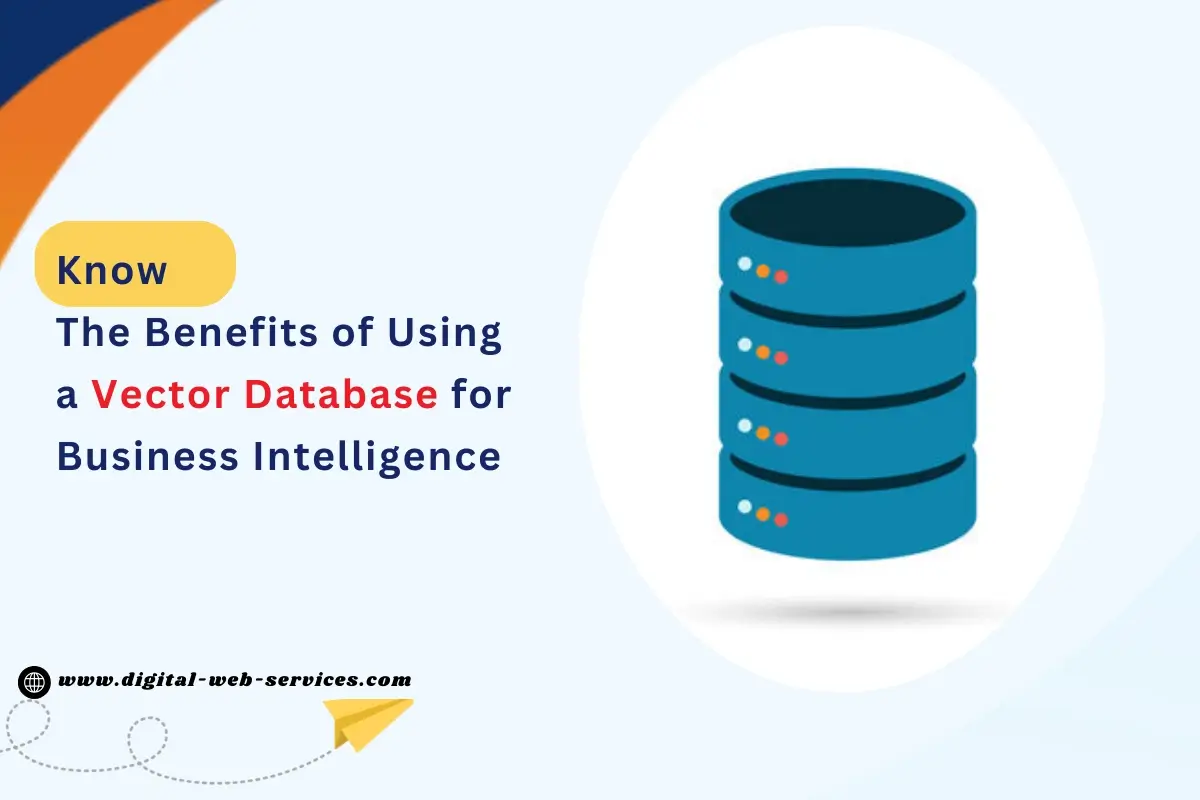
In the fast-moving business intelligence sector, the tools and technologies we employ significantly influence our decision-making capabilities. Traditional relational databases have been crucial for data storage and retrieval; however, they often struggle to meet the requirements of contemporary, data-heavy applications.
Vector databases have emerged as a significant innovation in data management. In 2023, the market value for vector databases reached $1,781.54 million, indicating their increasing significance. These databases introduce an advanced method for managing vast and intricate datasets, equipping businesses with the necessary speed, scalability, and adaptability to remain competitive in the current data-centric market.
In this blog post, we will explore the numerous advantages of adopting vector DBs for business intelligence, demonstrating why this technology is becoming essential for progressive companies.
Fast Query Performance
Vector databases are designed to make queries run much faster. They use smart indexing and parallel processing to pull data quickly, even from large and complicated datasets. This means that with the help of a vector DB, analysts can run more queries in less time, leading to faster insights and better adaptability to market shifts.
The speed boost is more than just fast responses; it also allows for more detailed analysis, which is crucial for making strategic decisions. Being able to quickly examine large amounts of data helps businesses act immediately on new trends and opportunities, giving them an edge over competitors.
Enhanced Data Representation
One of the standout features of vector databases is their adeptness in managing diverse data types such as images, videos, and unstructured text. Traditional databases typically require data to be heavily formatted, whereas vector DBs maintain the integrity of complex data in their native formats.
This capability ensures that businesses can utilize more of their data, gaining insights from sources previously considered too challenging to analyze efficiently. With the ability to process and analyze rich media content, companies can unlock new dimensions of customer insights and operational efficiencies. This comprehensive data handling allows for more nuanced and sophisticated analytics, driving more informed business strategies.
Scalability and Flexibility
As businesses expand, their data grows too. Vector databases are great at growing with the business, and managing larger data volumes without slowing down. But it’s not just about managing more data, it’s also about being adaptable. Businesses can add new types of data or update their analysis methods without the usual hassle of traditional databases.
This adaptability is key for businesses wanting to stay competitive in a changing market. In addition, being able to easily add more resources as needed keeps performance steady and high. This makes it simpler for companies to innovate and maintain their edge.
Improved Accuracy in Search and Retrieval
Accuracy in data search and retrieval is paramount in business intelligence. Vector databases enhance this precision by utilizing algorithms that understand and process data in its vector form, allowing for nuanced and highly accurate search results. This level of accuracy helps businesses uncover subtle patterns and trends, enhancing decision-making with finer details that would likely be missed by conventional databases.
The ability to perform semantic searches means businesses can find relevant information even when exact matches are not available. This improved retrieval accuracy supports more effective data mining and knowledge discovery, which are critical in formulating effective business strategies.
Integration with Machine Learning and AI
The integration of machine learning and artificial intelligence with vector DBs offers another layer of capability to business intelligence. These databases provide a robust backend that supports advanced predictive analytics and real-time decision-making systems.
By feeding ML and AI algorithms with high-quality data from vector databases, businesses can develop smarter models that predict market trends and customer behavior with high accuracy, offering a substantial competitive edge. This seamless integration allows for the automation of complex analytical tasks, reducing the time and effort required for data scientists. Additionally, continuous learning from real-time data ensures that predictive models remain relevant and accurate.
Cost Efficiency
Vector databases not only offer superior performance and flexibility but also reduce operational costs. They optimize hardware usage and can lower maintenance costs through more efficient data processing techniques. Businesses find that investing in vector databases reduces the need for frequent upgrades and expansions of hardware infrastructure, which are often required with traditional databases to handle increased loads.
Additionally, the administrative and operational simplicity of vector DBs allows IT teams to focus on strategic tasks rather than routine maintenance. This reduction in overhead translates to significant cost savings, making advanced data analytics more accessible to a wider range of businesses. The long-term financial benefits also include lower energy consumption and reduced physical space requirements for data centers.
Final Thoughts
Switching to vector databases in business intelligence isn’t just a tech upgrade; it’s a major improvement in how businesses use data to get ahead. With their quick performance, better data management, ability to scale, and compatibility with the latest AI, vector databases help companies not only keep up but lead in today’s fast-moving market.
As data continues to change, moving to a vector database could be a game-changing choice for securing a data-focused future.
Digital Web Services (DWS) is a leading IT company specializing in Software Development, Web Application Development, Website Designing, and Digital Marketing. Here are providing all kinds of services and solutions for the digital transformation of any business and website.










